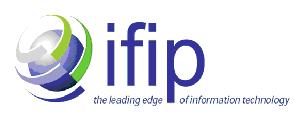1st AI in Education Workshop: Innovations and Applications (AIeIA 2012)
Important Dates:
Paper submission: April 29, 2012 May 6th, 2012
Notification of acceptance/rejection: May 26, 2012 June 10th, 2012
Camera-ready submission: June 4, 2012 June 15th, 2012
Early registration: June 04, 2012 June 25th, 2012
Workshop dates: To be announced
Program Chairs
Achilleas Kameas
Hellenic Open University, Greece
kameas@eap.gr
Antonia Stefani
Hellenic Open University, Greece
stefani@eap.gr
Workshop Program Committee
- Andreas Andreou, Cyprus
- Yacine Bellik, France
- Stavros Demetriades, Greece
- Hani Hagras, UK
- Thanos Kakarountas, Greece
- Dimitris Kalles, Greece
- Wolfgang Minker, Germany
- Eleni Rossiou, Greece
- George Roussos, UK
- Spyros Sioutas, Greece
- Bill Vassiliadis, Greece
- Michael Weber, Germany
- Ioannis Zaharakis, Greece
Artificial Intelligence can be a major enabling technology for this type of Educational paradigm. AI's application in Education is one of the oldest yet still promising and most exciting research topics with a significant practical impact. Especially Knowledge Management has yet much to offer in the way computing in education is used. The goal of the Workshop is to assess the impact of Knowledge Management to current Educational practices and more significantly, to identify opportunities, benefits and drawbacks to current practices that will permit progress beyond the state of the art.
The Workshop aims at addressing theoretical and practical issues concerning new trends in knowledge discovery, acquisition representation, sharing and reuse.By accepting original contributions from platform and tool providers, researchers and system developers from academia and industry it soughts to be a forum for exchanging ideas and experiences, sharing of best practices and fostering further development in the application of AI in Education.
Workshop Topics: The workshop topics include but are not limited to the following applications of AI in Education:
- Knowledge discovery, modeling, visualization, sharing and reuse
- Knowledge Management and Social Learning
- Knowledg-based Learning Systems
- Knowledge Relationship Discovery and Statistical Relational Learning
- Learning theory and Knowledge Management
- Knowledge Management and Learning Content
- Knowledge management, sharing and reuse in Virtual Communities
- Data mining techniques for Knowledge discovery
- Ontology design, reuse and population
- Machine Learning and Probabilistic Theory for adaptation techniques
- Modeling user motivations and goals
- Innovative Approaches to Knowledge Management in Education
Submission:
All papers should be submitted by email to the Program Chair. Papers should be submitted either in a doc or in a pdf form and they should be peer reviewed by at least 2 academic referees. Papers should not exceed 10 pages formatted according to the LNCS Springer style.
Publication:
Accepted papers will be presented orally in the conference for 20 minutes and they will be published in the Proceedings of the main event. They will be also considered for potential selection for publication in the Special Issues that will be edited.
Registration fees and benefits for the workshops' participants are exactly identical with the ones of the main AIAI 2012 event.

